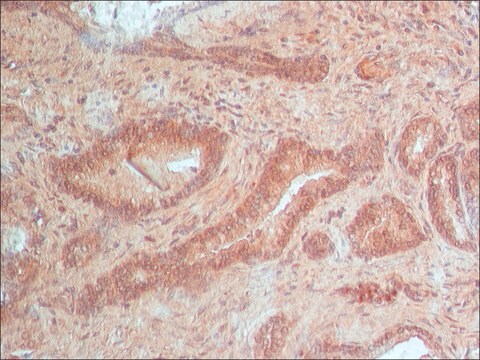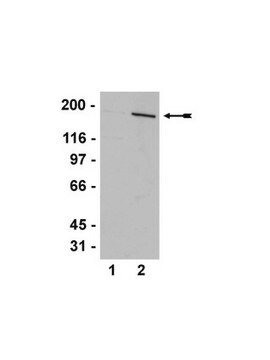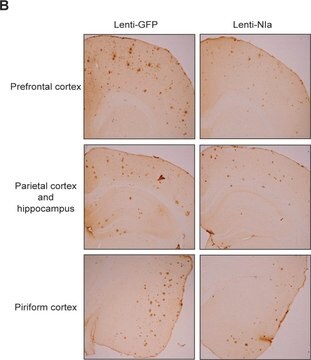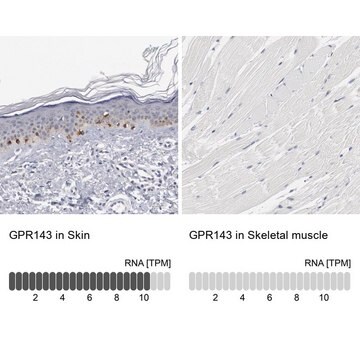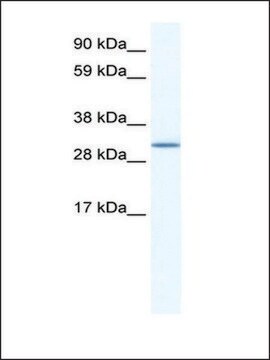SAB4200101
Anti-AS160 antibody produced in rabbit

~1.5 mg/mL, affinity isolated antibody
Synonyme(s) :
Anti-Akt substrate of 160 kDa, Anti-TBC1D4 (TBC1 domain family, member 4)
About This Item
Produits recommandés
Source biologique
rabbit
Conjugué
unconjugated
Forme d'anticorps
affinity isolated antibody
Type de produit anticorps
primary antibodies
Clone
polyclonal
Forme
buffered aqueous solution
Poids mol.
antigen ~160 kDa
Espèces réactives
human
Conditionnement
antibody small pack of 25 μL
Validation améliorée
recombinant expression
Learn more about Antibody Enhanced Validation
Concentration
~1.5 mg/mL
Technique(s)
indirect immunofluorescence: 8-16 μg/mL using HEK-293T cells
western blot: 0.8-1.6 μg/mL using extracts of HEK-293T cells over expressing human AS160
Numéro d'accès UniProt
Conditions d'expédition
dry ice
Température de stockage
−20°C
Modification post-traductionnelle de la cible
unmodified
Informations sur le gène
human ... TBC1D4(9882)
mouse ... Tbc1d4(210789)
Catégories apparentées
Description générale
Application
Actions biochimiques/physiologiques
Forme physique
Clause de non-responsabilité
Vous ne trouvez pas le bon produit ?
Essayez notre Outil de sélection de produits.
Code de la classe de stockage
10 - Combustible liquids
Point d'éclair (°F)
Not applicable
Point d'éclair (°C)
Not applicable
Faites votre choix parmi les versions les plus récentes :
Certificats d'analyse (COA)
Vous ne trouvez pas la bonne version ?
Si vous avez besoin d'une version particulière, vous pouvez rechercher un certificat spécifique par le numéro de lot.
Déjà en possession de ce produit ?
Retrouvez la documentation relative aux produits que vous avez récemment achetés dans la Bibliothèque de documents.
Notre équipe de scientifiques dispose d'une expérience dans tous les secteurs de la recherche, notamment en sciences de la vie, science des matériaux, synthèse chimique, chromatographie, analyse et dans de nombreux autres domaines..
Contacter notre Service technique
